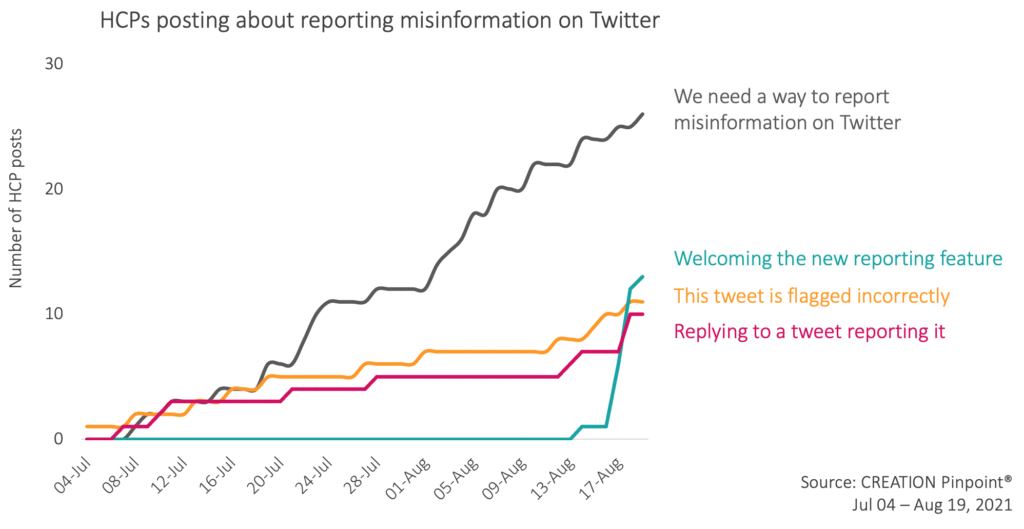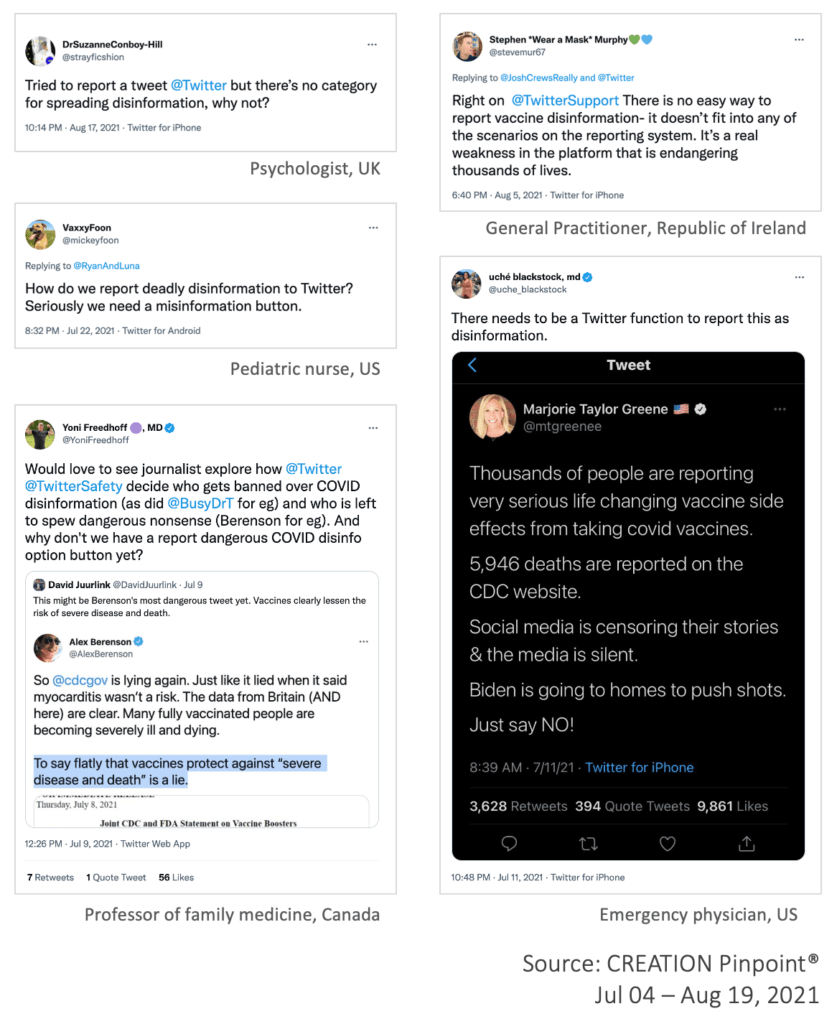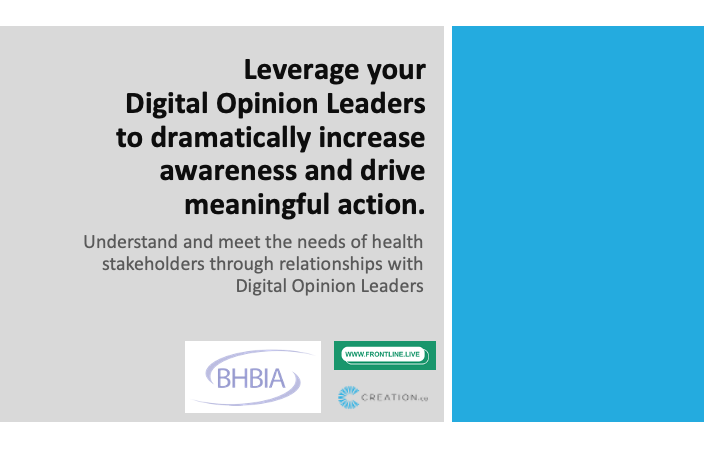On August 17th 2021 Twitter announced it would be bringing in a new feature to allow users in the US, South Korea, and Australia to report tweets that ‘seem misleading’. Especially relating to vaccines COVID-19 vaccines, but also other issues, healthcare professionals (HCPs) were very pleased with this option. Up until this point Twitter had been using an algorithm to ‘flag’ tweets about COVID-19 vaccines which could potentially be misleading by adding a message at the bottom of the post reading “This Tweet is misleading. Find out why health officials consider COVID-19 vaccines safe for most people.”
This had been a need expressed by HCPs for quite some time. Looking back over the six weeks leading up to this announcement at the original posts of HCPs there were a number of ways they were interacting with both Twitter’s algorithm and the desire to play a part in flagging misleading posts.

There were a number of HCPs wanting to play their part in stopping misinformation by calling out for a button to flag misleading posts, sometimes directly writing tweets to Twitter asking for this feature (grey line on chart).

Prior to this feature being available some HCPs looked to engage Twitter around specific posts too (pink line). When seeing a misleading tweet some would reply to it, at mentioning @Twitter, @TwitterSaftey or @TwitterEng to get Twitter’s attention, stating the content was misleading or false.
Twitter’s own algorithm was not always popular. How automatic classification of misinformation is carried out by social media giants, like Twitter, Facebook and Instagram, is a contentious issue among HCPs (orange line). Occasionally HCPs replied or quoted posts to ask how it had not been deemed misleading. But more often than not, when criticising Twitter’s flagging system it was to question the validity of a tweet tagged as misleading.
When the feature was announced and users could start using it it was widely praised by healthcare workers as a positive move to stop misinformation. There was a feeling of empowerment that they, the professionals with medical qualifications, not “Dr Twitter”, could help recognise and flag misinformation.
An important step in the right direction!
Now we can report mis/disinformation. https://t.co/YRmQAbNw4N
— Matt Molloy, MD, MPH (@MMolloyMD) August 18, 2021
Me on my way to report all my Twitter nemesis’s tweets as misleading health info. pic.twitter.com/nEqMRZRj78
— MDJ | Danielle Jones, MD, FACOG (@MamaDoctorJones) August 18, 2021
For more information on HCPs using social media to combat misinformation, read…
Health misinformation can be deadly. Here’s how it’s being fixed
 By Jamie Doggett
By Jamie Doggett 


